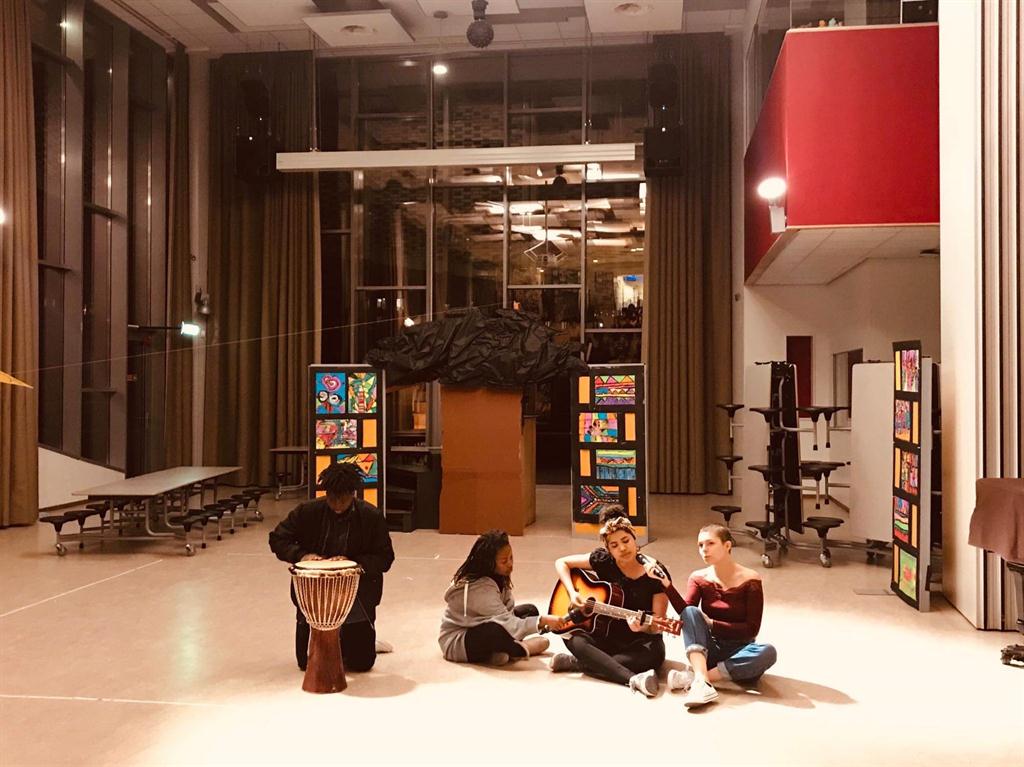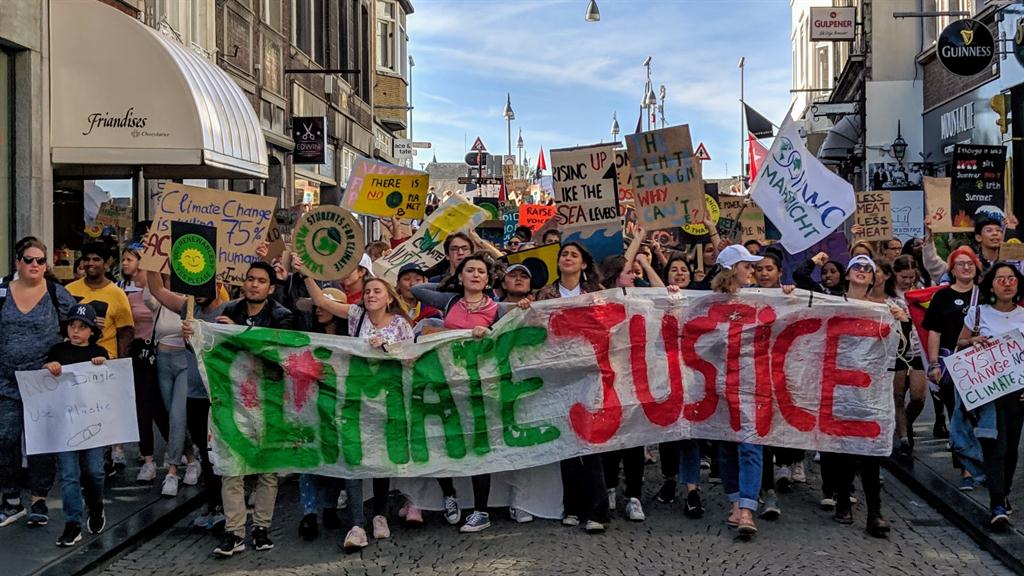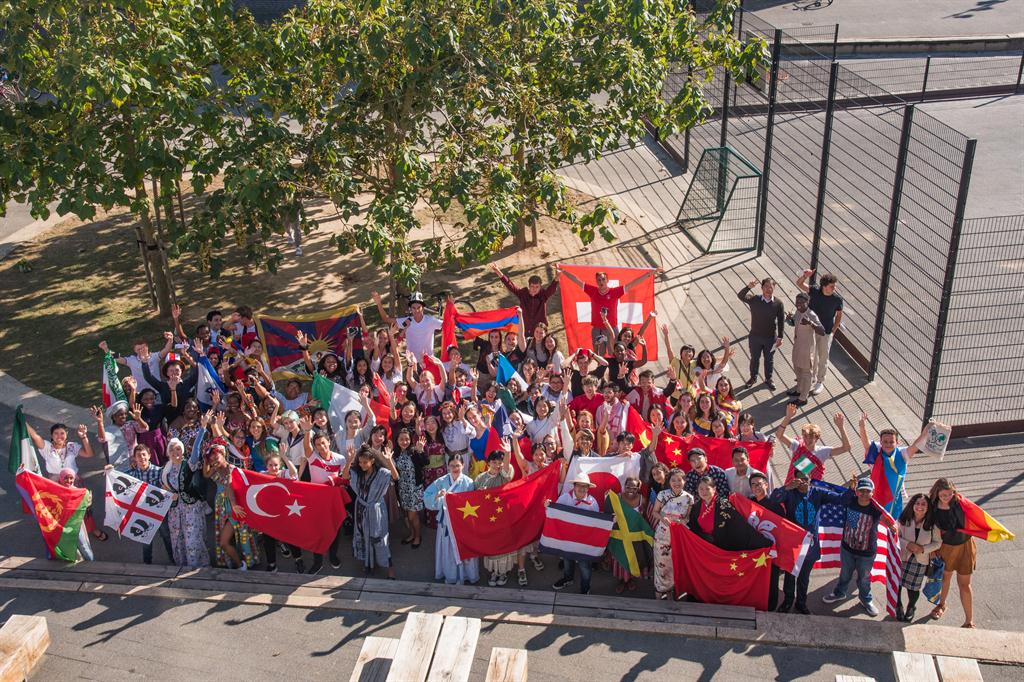United World Colleges change lives
United World Colleges (UWC) is a global education movement. Students aged 15-19 from all over the world are invited to embark on a life-transforming two-year journey.
Elizabeth Joseph
These willing participants coming from different backgrounds, cultures and languages have a united mission to make education a force for peace and sustainability. During the two-year journey, amongst others, students obtain an International Baccalaureate (IB) Diploma, exposure to a universal playing field, vast experience in community service and endless exposure to outdoor activities.
There are 18 UWC schools located on four continents. The schools are situated in Tanzania, Eswatini, Japan, Hong Kong, Thailand, China, India, Singapore, USA, Canada, Costa Rica, Germany, The Netherlands, Italy, Norway, Bosnia and Herzegovina, Armenia and the UK.
Student selection is not determined by race, religion, gender, sexual orientation, socioeconomic status or politics. The UWC mission is "to develop inquiring, knowledgeable and caring young people who help to create a better and more peaceful world through intercultural understanding and respect".
Numerous scholarships are available for deserving students. Curious, adventurous, open-minded, self-motivated, strong academic and extramural enthusiasts are urged to apply.
Applicants are required to have a proven history of academic excellence, Namibian citizenship, completing grade 11 or 12 in 2020 and must be between the ages of 16-18.
Applications should include 1) Statement of no more than one page outlining your community involvement; 2) Motivation of no more than one page explaining why you would like to attend a United World College; 3) Reference letter from a member of your community; 4) Academic records (including final Grade 10 results) and a Copy of your ID/Passport. Applications must be sent to [email protected].
The Zone spoke to a student, Fiona Farrel who is attending UWC soon and here’s what she had to say:
Q- Which UWC College did you or are you currently attending?
UWC Maastricht, Netherlands. I am currently in my first year.
Q- Paint us a quick picture of a day at a UWC?
Classes begin at daybreak, a two-minute walk from the residence. In literature class we are reading Woman at Point Zero by El Saadawi, where we take advantage of the diversity in our class when discussing the prevalent global issues reflected in the novel. The school day continues with science, mathematics and humanity classes, where Theory of Knowledge questions always seem to creep into the discussion.
UWC acknowledges the value of learning outside the four walls of our classroom; after school, UWC students are scattered across the city of Maastricht volunteering at animal farms, working on refugee projects, or planning a conference. This experience of branching out is extremely rewarding as students have the chance to interact with locals, learn a new language, and improve their collaborative skills.
At UWC, there is plenty of space and flexibility for students to choose how they wish to spend their evenings, whether it be reviewing material learnt in class, diving into a spontaneous political discussion with a classmate, or learning to cook Moroccan food. At sundown we slowly return to the residence and bond with our floormates. In the evenings, we share food and we share music.
Q- How do UWCs compare to Namibian schools? With respect to levels of difficulty, exposure, cultural, sports and community service activities, available resources etc.
AUWC students receive an International Baccalaureate (IB) diploma at the end of the two years. IB students study six subjects, and have the freedom to select subjects that reflect what they want to study in the future. Every IB student needs to complete three essential elements of the IB: creativity, action, service (CAS). CAS involves students in a range of activities - music, sport or volunteering, alongside the academics of the IB, to develop initiative and build perseverance.
Within UWC Maastricht, there are multiple teachers per subject. When a concept studied in class is particularly challenging, there is always an expert nearby to clarify the confusion. Additionally, class sizes rarely exceed 20 students, allowing for strong student-teacher relationships to form.
Q- Major challenges experienced with attending a UWC?
The biggest challenge so far has been balancing extracurricular activities with academics. As well as the core element of CAS, there are countless other initiatives on campus and I have come to learn that it is impossible to be a part of every event that happens at school. I have been pushed to think about my priorities and I am encouraged to decide for myself how I choose to spend my time outside of class.
Q- How is the experience of exposure to persons of completely different cultures and backgrounds helping you shape your identity as a Namibian / world citizen?
UWC calls for the celebration of differences, and this has driven me to accurately represent the diversity of music, food and traditional garments in Namibia. It is heart-warming to present a taste of Namibia's culture while sharing a dish of pap and mutete with floormates. Attending UWC has allowed me to build confidence in my personal values, while still being able to appreciate and understand the values of a different way of life.
Q- What are the benefits of studying the IB Diploma?
The IB pushes students to think critically and challenge assumptions. Theory of Knowledge (TOK) is one of the unique subjects that the IB Diploma offers. TOK is a subject taken by all IB students and in this class we question the knowledge claims we tend to take for granted. The IB requires students to develop planning skills and improve with time management in order to excel in its requirements. The IB Diploma is highly respected amongst the world’s top universities. A student that does well in the IB will be recognised for the immense effort they have put into completing this rigorous programme.
Q- Are the choice of subjects and extracurricular activities helping you decide what career path you would like to follow?
Yes. Students are able to formulate a subject package that points them into the direction of their desired career, whether it be in the Sciences, Humanities, Mathematics, or Languages. Additionally, the CAS programme allows students to select activities that they are genuinely interested in.
Q- Why do you recommend studying at a United World College?
UWC is a platform for a healthy exchange of culture. Quite often the media paints an incomplete picture of various countries and religions. Being present at a UWC has deepened my understanding of the world through one-to-one conversations with other international students. The challenge of sharing a home with such a diverse group of students shapes compassionate, responsible and respectful leaders.
Q- What advice will you give to prospective UWC students?
Use the few months before UWC to spend time with family and loved ones. UWC Maastricht did well with slowly immersing students into the IB without making us feel overwhelmed, so don’t worry too much about studying prior to your departure.
Food is a great way to bond with new people, don’t hesitate to pack some snacks or ingredients for your favourite recipe in your luggage. Bring many photographs from home, these keep me grounded and are a constant reminder for my decision to represent my country at a UWC.
At the moment, there are 18 UWCs. The Namibian National Committee will nominate you to attend the college that fits you best. UWCs, within themselves, are incredibly diverse. It is possible that our UWC experiences develop differently.
Q- Anything else you would like to add?
I am extremely proud to represent Namibia at UWC Maastricht. I would like to thank Windhoek International School for preparing me for the IB and for shaping me into a global citizen. Finally, this adventure would have never come about without the help from the Namibian National Committee.
Closing Date for applications is on 04 March 2020. For more information: Email: [email protected] or visit their website at https:www.uwc.org. Also, check out their Facebook at United World College Namibia National Committee.
These willing participants coming from different backgrounds, cultures and languages have a united mission to make education a force for peace and sustainability. During the two-year journey, amongst others, students obtain an International Baccalaureate (IB) Diploma, exposure to a universal playing field, vast experience in community service and endless exposure to outdoor activities.
There are 18 UWC schools located on four continents. The schools are situated in Tanzania, Eswatini, Japan, Hong Kong, Thailand, China, India, Singapore, USA, Canada, Costa Rica, Germany, The Netherlands, Italy, Norway, Bosnia and Herzegovina, Armenia and the UK.
Student selection is not determined by race, religion, gender, sexual orientation, socioeconomic status or politics. The UWC mission is "to develop inquiring, knowledgeable and caring young people who help to create a better and more peaceful world through intercultural understanding and respect".
Numerous scholarships are available for deserving students. Curious, adventurous, open-minded, self-motivated, strong academic and extramural enthusiasts are urged to apply.
Applicants are required to have a proven history of academic excellence, Namibian citizenship, completing grade 11 or 12 in 2020 and must be between the ages of 16-18.
Applications should include 1) Statement of no more than one page outlining your community involvement; 2) Motivation of no more than one page explaining why you would like to attend a United World College; 3) Reference letter from a member of your community; 4) Academic records (including final Grade 10 results) and a Copy of your ID/Passport. Applications must be sent to [email protected].
The Zone spoke to a student, Fiona Farrel who is attending UWC soon and here’s what she had to say:
Q- Which UWC College did you or are you currently attending?
UWC Maastricht, Netherlands. I am currently in my first year.
Q- Paint us a quick picture of a day at a UWC?
Classes begin at daybreak, a two-minute walk from the residence. In literature class we are reading Woman at Point Zero by El Saadawi, where we take advantage of the diversity in our class when discussing the prevalent global issues reflected in the novel. The school day continues with science, mathematics and humanity classes, where Theory of Knowledge questions always seem to creep into the discussion.
UWC acknowledges the value of learning outside the four walls of our classroom; after school, UWC students are scattered across the city of Maastricht volunteering at animal farms, working on refugee projects, or planning a conference. This experience of branching out is extremely rewarding as students have the chance to interact with locals, learn a new language, and improve their collaborative skills.
At UWC, there is plenty of space and flexibility for students to choose how they wish to spend their evenings, whether it be reviewing material learnt in class, diving into a spontaneous political discussion with a classmate, or learning to cook Moroccan food. At sundown we slowly return to the residence and bond with our floormates. In the evenings, we share food and we share music.
Q- How do UWCs compare to Namibian schools? With respect to levels of difficulty, exposure, cultural, sports and community service activities, available resources etc.
AUWC students receive an International Baccalaureate (IB) diploma at the end of the two years. IB students study six subjects, and have the freedom to select subjects that reflect what they want to study in the future. Every IB student needs to complete three essential elements of the IB: creativity, action, service (CAS). CAS involves students in a range of activities - music, sport or volunteering, alongside the academics of the IB, to develop initiative and build perseverance.
Within UWC Maastricht, there are multiple teachers per subject. When a concept studied in class is particularly challenging, there is always an expert nearby to clarify the confusion. Additionally, class sizes rarely exceed 20 students, allowing for strong student-teacher relationships to form.
Q- Major challenges experienced with attending a UWC?
The biggest challenge so far has been balancing extracurricular activities with academics. As well as the core element of CAS, there are countless other initiatives on campus and I have come to learn that it is impossible to be a part of every event that happens at school. I have been pushed to think about my priorities and I am encouraged to decide for myself how I choose to spend my time outside of class.
Q- How is the experience of exposure to persons of completely different cultures and backgrounds helping you shape your identity as a Namibian / world citizen?
UWC calls for the celebration of differences, and this has driven me to accurately represent the diversity of music, food and traditional garments in Namibia. It is heart-warming to present a taste of Namibia's culture while sharing a dish of pap and mutete with floormates. Attending UWC has allowed me to build confidence in my personal values, while still being able to appreciate and understand the values of a different way of life.
Q- What are the benefits of studying the IB Diploma?
The IB pushes students to think critically and challenge assumptions. Theory of Knowledge (TOK) is one of the unique subjects that the IB Diploma offers. TOK is a subject taken by all IB students and in this class we question the knowledge claims we tend to take for granted. The IB requires students to develop planning skills and improve with time management in order to excel in its requirements. The IB Diploma is highly respected amongst the world’s top universities. A student that does well in the IB will be recognised for the immense effort they have put into completing this rigorous programme.
Q- Are the choice of subjects and extracurricular activities helping you decide what career path you would like to follow?
Yes. Students are able to formulate a subject package that points them into the direction of their desired career, whether it be in the Sciences, Humanities, Mathematics, or Languages. Additionally, the CAS programme allows students to select activities that they are genuinely interested in.
Q- Why do you recommend studying at a United World College?
UWC is a platform for a healthy exchange of culture. Quite often the media paints an incomplete picture of various countries and religions. Being present at a UWC has deepened my understanding of the world through one-to-one conversations with other international students. The challenge of sharing a home with such a diverse group of students shapes compassionate, responsible and respectful leaders.
Q- What advice will you give to prospective UWC students?
Use the few months before UWC to spend time with family and loved ones. UWC Maastricht did well with slowly immersing students into the IB without making us feel overwhelmed, so don’t worry too much about studying prior to your departure.
Food is a great way to bond with new people, don’t hesitate to pack some snacks or ingredients for your favourite recipe in your luggage. Bring many photographs from home, these keep me grounded and are a constant reminder for my decision to represent my country at a UWC.
At the moment, there are 18 UWCs. The Namibian National Committee will nominate you to attend the college that fits you best. UWCs, within themselves, are incredibly diverse. It is possible that our UWC experiences develop differently.
Q- Anything else you would like to add?
I am extremely proud to represent Namibia at UWC Maastricht. I would like to thank Windhoek International School for preparing me for the IB and for shaping me into a global citizen. Finally, this adventure would have never come about without the help from the Namibian National Committee.
Closing Date for applications is on 04 March 2020. For more information: Email: [email protected] or visit their website at https:www.uwc.org. Also, check out their Facebook at United World College Namibia National Committee.






Kommentaar
Republikein
Geen kommentaar is op hierdie artikel gelaat nie